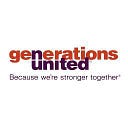Key Provisions for Kinship Caregivers in the Consolidated Appropriations Act of 2021
On December 27, President Trump signed H.R. 133, the Consolidated Appropriations Act of 2021, into law. The $1.4 trillion omnibus spending package funds the government for 2021 and includes $900 billion in COVID-19 relief. The COVID-19 relief portion is smaller than we had hoped, but there are many exciting things included in this package. Many important provisions were included because of the advocacy of individuals like you!
Some key provisions of the Consolidated Appropriations Act of 2021 that we want to highlight are (NOTE: All page numbers listed are the page numbers within the PDF document. The page numbers printed on the pages are not necessarily in numerical order.):
- A $20 million appropriation for a fourth year of grants to states, tribes and territories to develop, enhance or evaluate kinship navigator programs. (Page 999)
- A $2.75 million appropriation for the Title IV-E Prevention Services Clearinghouse to identify, establish and disseminate practices to meet the specified criteria. (Page 999)
- A $5 million appropriation for the LEGACY Act of 2003, the first federal law to create affordable housing opportunities for grandfamilies. This new appropriation is to be used to expand the supply of intergenerational housing for older caregivers raising children. (Page 1760)
- A $50 million appropriation for Project AWARE (Advancing Wellness and Resilience in Education) activities and services such as increase awareness of mental health issues among school-aged youth, providing training for school personnel and other adults to detect and respond to mental health issues, and connect school-aged youth and their families to needed services. (page 1833)
- A $10 million appropriation for National Child Traumatic Stress Network which works to improve access to services for traumatized children, their families and communities. (Page 1833)
- More than $5.9 billion for the Child Care and Development Block Grant to supplement state general revenue funds for child care assistance for low-income families. (Pages 992–3)
- An additional $10 billion in Child Care and Development Block Grant funding to prevent, prepare for, and respond to COVID-19 and to provide relief from copayments and tuition payments for families. (Page 1834)
- $13 billion for a 15% increase in monthly SNAP (Supplemental Nutrition Assistance Program) benefits for recipients which will last until June 30, 2021. (Page 2318)
- Including the Supporting Foster Youth and Families through the Pandemic Act (Page 3168) which provides additional support for older foster youth, grandparents & other kinship families, home visiting for at-risk pregnant and parenting families, foster care prevention services, and other child welfare services. The Act also includes some long-advocated flexibility for kinship navigator programs. During the COVID-19 public health emergency period, the evidence-base and matching funds requirements are waived for kinship navigator programs. During this period, 100 percent of the program costs are reimbursable from the federal government. The programs do not have meet the promising, supported or well-supported requirements as determined by the Title IV-E Prevention Services Clearinghouse. To receive the reimbursement during this public health emergency, states must provide the US Department of Health and Human Services with an “assurance that the program will be, or is in the process of being, evaluated for the purpose of building an evidence base to later determine whether the program meets the [evidence-based] criteria.”
- Including the Fostering Stable Housing Opportunities Act a bill that would help to ensure that youth who are aging out of foster care and are at risk of homelessness will have critical assistance to help them achieve housing stability and self-sufficiency. (Page 2515).
- Increases appropriations for Family Violence Prevention and Services and the Domestic Violence Hotline.
